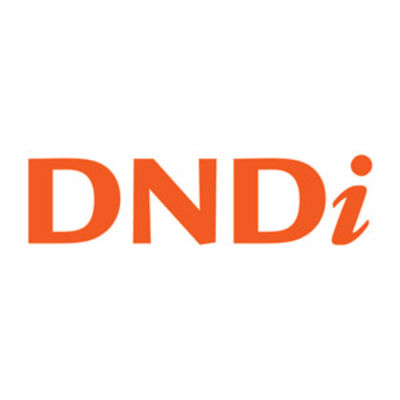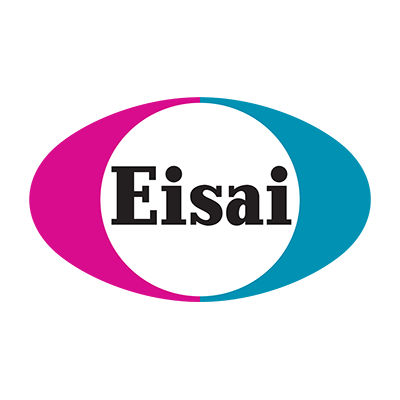预约演示
更新于:2025-05-07
CYP51 family
更新于:2025-05-07
基本信息
别名- |
简介- |
关联
111
项与 CYP51 family 相关的药物作用机制 fungal CYP51A1抑制剂 |
最高研发阶段批准上市 |
首次获批国家/地区 美国 |
首次获批日期2022-04-26 |
靶点 |
作用机制 CYP51A1抑制剂 |
原研机构 |
非在研适应症 |
最高研发阶段批准上市 |
首次获批国家/地区 日本 |
首次获批日期2018-01-19 |
作用机制 CYP51A1抑制剂 [+1] |
在研适应症 |
非在研适应症 |
最高研发阶段批准上市 |
首次获批国家/地区 巴西 |
首次获批日期2016-08-22 |
1,745
项与 CYP51 family 相关的临床试验NCT06732388
Repurposing Itraconazole for Secondary Prevention of Metaplasia and Primary Prevention of Cancer in Patients With High-Risk Barrett's Esophagus in Combination With Ablation
This phase II trial tests how well itraconazole works in combination with standard of care endoscopy with ablation for the prevention of esophageal cancer in patients with high-risk Barrett's esophagus (BE). BE is a condition in which the lining of the esophagus changes. The tissue that lines the esophagus becomes more like the tissue that lines the intestine. People with Barrett's esophagus have a higher risk of developing esophageal cancer. Itraconazole is a drug used to prevent or treat fungal infections. It belongs to the family of drugs called antifungal agents. Ablation refers to the removal of abnormal tissue using heat. Endoscopy is a procedure for looking at the esophagus using a long, flexible tube called an endoscope, which has a video camera at the end. Radiofrequency ablation is a type of heat therapy that uses radiofrequency energy (similar to microwave heat) to destroy the abnormal tissue in the esophagus. Giving itraconazole in combination with standard of care endoscopy with ablation may improve the effects of ablation and prevent esophageal cancer in patients with high-risk Barrett's esophagus.
开始日期2025-06-02 |
申办/合作机构 |
ChiCTR2500101166
Establishment of Population Pharmacokinetic Model of Posaconazole in Patients with Invasive Fungal Diseases and Development of Intelligent and Precise Cinical Decision System
开始日期2025-06-02 |
申办/合作机构- |
NCT06942936
An Open-label, Fixed-sequence and Two-part Study to Assess the Impact of Multiple Doses of Itraconazole on the Pharmacokinetics of AZD5004 in Healthy Participants and Multiple Doses of AZD5004 on the Pharmacokinetics of Combined Oral Ethinyl Oestradiol and Levonorgestrel in Healthy Female Participants
The purpose of this study is to assess the impact of multiple doses of itraconazole on the pharmacokinetics (PK) of AZD5004 in healthy participants (Part A), and to assess the impact of multiple doses of AZD5004 on the PK of Combined Oral Contraceptives (COCs) in healthy female participants (Part B).
开始日期2025-05-21 |
申办/合作机构  AstraZeneca PLC AstraZeneca PLC [+1] |
100 项与 CYP51 family 相关的临床结果
登录后查看更多信息
100 项与 CYP51 family 相关的转化医学
登录后查看更多信息
0 项与 CYP51 family 相关的专利(医药)
登录后查看更多信息
1,248
项与 CYP51 family 相关的文献(医药)2025-06-01·The Science of Nature
Exploring the potential of essential oils against airborne fungi from cultural heritage conservation premises
Article
作者: Grbić, Milica Ljaljević ; Savković, Željko ; Veselinović, Jovana ; Džamić, Ana ; Stupar, Miloš
2025-06-01·Toxicon
The DHCR7 is the key target of lipotoxic liver injury caused by matrine through abnormal activation of the cholesterol synthesis pathway
Article
作者: Li, Jiaqi ; Zhang, Wenting ; Tao, Xiaoyu ; Li, Zhiqi ; Zhao, Chongjun ; Fan, Qiqi ; Gao, Yifei ; Chen, Linzhen ; Wu, Jiarui ; Lu, Shan
2025-05-01·Antonie van Leeuwenhoek
Azole resistance: patterns of amino acid substitutions in Candida sterol 14α-demethylase
Article
作者: Ghate, Sudeep D ; Rao, R Shyama Prasad ; Sashindran, V K ; Pinto, Larina ; Suravajhala, Prashanth ; Dakal, Tikam Chand ; Shastry, Rajesh P
32
项与 CYP51 family 相关的新闻(医药)2024-12-11
·生物探索
引言
在过去的几十年里,脂肪肝从一种被广泛忽视的疾病状态逐渐成为全球健康的重大威胁,尤其是在代谢性功能障碍相关脂肪性肝病(MASLD)的研究领域。这种疾病不仅仅是肝脏脂肪堆积的简单表现,而是一种复杂的代谢紊乱,其发展可能伴随严重的并发症,如肝纤维化、肝硬化甚至肝细胞癌(HCC)。更令人担忧的是,MASLD通常与心血管疾病和2型糖尿病密切相关,进一步加剧了患者的健康风险。然而,MASLD患者的临床表现与疾病进展并不完全一致。有人可能在轻度代谢异常的状态下维持健康,而另一些人则可能快速恶化并面临多重并发症。为何会出现如此显著的个体差异?答案可能隐藏在这一疾病的异质性之中。
在这一背景下,研究人员通过不同的数据分析方法,例如聚类分析,从复杂的数据中提取模式,揭示MASLD的不同亚型。这些亚型不仅在临床表现和代谢特征上各具特色,还可能蕴含着不同的病理机制,为个体化治疗提供了全新的机会。12月9日Nature Medicine的研究报道“Data-driven cluster analysis identifies distinct types of metabolic dysfunction-associated steatotic liver disease”通过对MASLD患者的大规模数据分析,系统性地发现并验证了两种主要的MASLD亚型:心脏代谢型和肝特异型。研究表明,这些亚型在基因组、代谢组学特征以及长期临床结局上存在显著差异。
通过识别不同的亚型,医生可以更有效地制定针对性的治疗策略,避免“一刀切”的治疗方案可能带来的局限性。此外,聚类分析模型的应用表明,六个简单的临床变量(如HbA1c、ALT、甘油三酯等)即可高效区分不同风险组,显著提高了临床诊断的效率和精准度。该研究不仅揭示了MASLD的复杂性,还为如何应对这一复杂性提供了切实可行的解决方案。
代谢性功能障碍相关脂肪性肝病(MASLD,Metabolic Dysfunction-Associated Steatotic Liver Disease)是全球最常见的慢性肝病之一,影响了全球约30%的人口。这种疾病并非仅仅是肝脏脂肪堆积的结果,它包含一个广泛的病理谱系,从单纯性脂肪肝(steatosis)到代谢性功能障碍相关脂肪性肝炎(MASH,Metabolic Dysfunction-Associated Steatohepatitis),并可能进一步进展为肝纤维化、肝硬化甚至肝细胞癌(HCC)。
MASLD的复杂性不仅表现在其病理谱系上,还体现在其显著的个体差异性。例如,尽管一些患者仅表现出轻微的代谢异常,但另一些患者可能同时伴有显著的心血管疾病风险或糖代谢紊乱。通过对这一疾病进行更为精细的分层和分析,可以帮助更好地理解其异质性,并推动个性化治疗策略的开发。
近年来,数据驱动的分析方法,例如聚类分析,已经成为解决MASLD异质性问题的关键工具。该研究通过基于六个核心临床变量的聚类分析,揭示了MASLD的两种主要亚型,并探讨了其生物学机制及临床意义。
六个数据驱动聚类在临床和组织学指标上的差异(Credit: Nature Medicine)
数据驱动聚类的分布:
图a和b展示了在ABOS队列(n=1,389)和验证队列(n=1,099)中六个聚类的分布情况。ABOS队列显示了各聚类的比例,其中Cluster 4占比最大,Cluster 5占比最小,而验证队列总体趋势与ABOS队列相似,但Cluster 6的占比略有增加。
雷达图中的临床变量比较:
图c和d以雷达图的形式分别展示了ABOS队列和验证队列中每个聚类的六个关键变量(年龄、BMI、HbA1c、LDL、甘油三酯和ALT)的中位值。灰色线表示ABOS队列中95百分位值,用以标记极端高值的范围。不同聚类的变量值分布显著不同,例如Cluster 4的BMI和甘油三酯值较高,而Cluster 5在ALT指标上表现突出。
MASH患者比例:
图e和f以柱状图展示了ABOS队列和验证队列中每个聚类MASH(代谢性功能障碍相关脂肪性肝炎)患者的比例。统计分析表明,不同聚类的MASH比例显著不同,Cluster 5在两队列中均呈现最高的MASH比例,这与其较高的ALT水平相一致。
组织学评分雷达图:
图g和h展示了组织学评分的雷达图,包括NAS评分(≥4)、脂肪变性(steatosis ≥1)、小叶炎症(lobular inflammation ≥1)、气球样变(ballooning ≥1)、以及纤维化分期(fibrosis ≥1和≥2)。这些结果进一步显示了各聚类在肝脏病理特征上的显著差异。例如,Cluster 5在多项指标上表现出最高的病理评分,而Cluster 1的评分则较低。
数据驱动的MASLD亚型分类
该研究基于法国ABOS队列(n=1,389),结合比利时(UZA, n=463)、意大利(MAFALDA, n=261)和芬兰(Helsinki, n=375)三个独立验证队列的数据,采用非监督聚类方法对MASLD患者进行分类。聚类分析基于六个关键临床变量:年龄、BMI、HbA1c、ALT、LDL和甘油三酯。选择这些变量是因为它们能够反映代谢功能和肝脏健康的核心特征,同时具备易于测量的优势。
研究发现,这六个变量能够将MASLD患者分为六个聚类,其中两个亚型显示出高度独特的代谢和临床特征。
心脏代谢型(Cluster 2)
该亚型的患者心血管疾病风险显著升高(HR=1.80, P<0.001);同时,这一亚型的2型糖尿病发病率也显著增加(HR=6.82, P<0.001);糖化血红蛋白(HbA1c)水平显著升高(9.2%,对照组为5.7%,P<0.001)。甘油三酯浓度显著增加(2.34 mmol/L,对照组为1.32 mmol/L,P<0.001)。高血压比例高达87.3%(对照组为54.5%,P<0.001)。
肝特异型(Cluster 5)
这一亚型更倾向于进展为慢性肝病(HR=4.52, P<0.001);与心脏代谢型不同,其心血管风险变化不显著(HR=1.18, P=0.054);丙氨酸转氨酶(ALT)显著升高(75 U/L,对照组为24 U/L,P<0.001);严重纤维化(≥3级)的发生率显著增加(15.8%,对照组为3.4%,P<0.001)。
验证队列的结果与ABOS队列一致,进一步支持了这些聚类的稳健性。值得注意的是,心脏代谢型和肝特异型的比例在验证队列中分别为11%和9%。生物学机制的差异化特征
通过对基因组和代谢组的进一步分析,研究揭示了心脏代谢型和肝特异型MASLD在分子机制上的显著差异。
肝特异型(Cluster 5)
胆汁酸代谢异常显著,包括甘氨牛磺胆酸及其硫酸化衍生物的升高(P<0.001);脂滴稳态调节相关基因(FABP4、FABP5)和炎症相关基因(CXCL9、SPP1)显著上调。这些基因表达的变化反映了脂肪堆积和肝炎症的增加。PNPLA3 rs738409突变在该亚型中的携带率高达85%(P<0.001),显著高于其他亚型。这一变异与肝内脂质积累和炎症高度相关。
心脏代谢型(Cluster 2)
与胰岛素抵抗相关的代谢物显著增加,如4-羟基苯乙酰谷氨酰胺(P<0.001);与心血管毒性相关的代谢物(如p-甲酚葡萄糖苷)显著升高;胆固醇代谢相关基因(HMGCS1、CYP51A1)显著上调;糖酵解相关基因(ALDOC)的表达也显著增强。
临床结局的差异化表现
研究通过对UK Biobank的13.4年中位随访数据进行分析,进一步验证了两种主要MASLD亚型在临床结局上的显著差异。
慢性肝病:肝特异型的累计发病率为4.4%(HR=4.52, 95% CI: 3.88-5.26, P<0.001),心脏代谢型的累计发病率为4.0%(HR=4.04, 95% CI: 3.50-4.66, P<0.001)。
心血管疾病:心脏代谢型的累计发病率为21.9%(HR=1.80, P<0.001),肝特异型的心血管疾病发病率为9.5%(HR=1.18, P=0.054)。
2型糖尿病:心脏代谢型的累计发病率为27.3%(HR=6.82, P<0.001),肝特异型的发病率为9.3%(HR=2.91, P<0.001)。聚类分析的临床价值与诊断优势
该研究证明,基于六个变量的聚类模型不仅能够识别MASLD的主要亚型,还在预测相关多系统结局(如肝病、心血管疾病和糖尿病)方面优于单一变量。这种方法为临床风险评估和个性化干预提供了重要工具。
针对MASLD亚型的个性化治疗策略肝特异型MASLD:推荐使用靶向肝脂肪减少和炎症缓解的药物,如Resmetirom。这些药物能够特异性降低肝内脂质含量,显著改善肝脏功能。心脏代谢型MASLD:需要更广泛的代谢紊乱管理策略,例如调节胆固醇和葡萄糖代谢的药物(如Lanifibranor)。GLP-1受体激动剂(如Semaglutide)能够有效降低心血管风险并促进体重管理。
这一简单而有效的工具能够辅助临床医生识别高风险患者,优化筛查和干预方案,尤其在复杂病例中表现出优越性。未来研究可进一步探索如何在其他种族和多样化人群中扩展这一模型的适用性。
综上,该研究通过聚类分析首次揭示了MASLD的两种主要亚型,并系统性地阐明了它们在分子机制、代谢特征和临床结局上的差异。这一发现为MASLD的个体化管理提供了理论基础,并为精准医疗的发展开辟了新路径。
参考文献
Raverdy, V., Tavaglione, F., Chatelain, E. et al. Data-driven cluster analysis identifies distinct types of metabolic dysfunction-associated steatotic liver disease. Nat Med (2024). https://doi-org.libproxy1.nus.edu.sg/10.1038/s41591-024-03283-1
责编|探索君
排版|探索君
转载请注明来源于【生物探索】
声明:本文仅用于分享,不代表平台立场,如涉及版权等问题,请尽快联系我们,我们第一时间更正,谢谢!
End
往期精选
围观
Nature | 单细胞分析技术的革命性进展
热文
Nature | 环状RNA(circRNA)为何成为基因调控的新宠?
热文
Cell | AI取代科研人员还有多远?
热文
新英格兰 | 司美格鲁肽(semaglutide)又有新发现:助力关节炎治疗
热文
CRISPR技术进化史 | 24年Cell 综述
2024-11-29
欢迎关注凯莱英药闻
2024 年11 月28 日,国家医保局官网正式公布了《2024 年版国家医保药品目录》;新版药品目录将于2025 年1 月1日在全国范围内正式实施。此次国家医保目录调整,共有91 种药品新增进入目录,目录内药品总数增至3159种;其中89 种以谈判/竞价方式纳入,平均降价63%,叠加谈判降价和医保报销双重因素,预计明年新增的这些目录内药品降为患者减负超过500 亿元。
今年纳入的91 个目录外药品中,有38 个是属于“全球新”的创新药;其中,肿瘤、镇痛、自免以及高血压、代谢和中枢神经系统创新药皆入围。本次调整后,目录内药品总数将增至3159 种,其中西药1765 种、中成药1394 种,肿瘤、慢性病、罕见病、儿童用药等领域的保障水平得到进一步提升。
据不完全统计,新纳入的38款全球创新药中,有23款创新药为中国上市公司所持有。
1
康方生物
康方生物是一家集研究、开发、生产及商业化全球首创或同类最佳创新生物新药于一体的领先企业。自成立以来,公司打造了独有的端对端康方全方位新药研究开发平台(ACE Platform),建立了以Tetrabody双特异性抗体开发技术、抗体偶联(ADC)技术、mRNA技术及细胞治疗技术为核心的研发创新体系。目前,公司已开发了50个以上用于治疗肿瘤、自身免疫、炎症、代谢疾病等重大疾病的创新候选药物,22个候选药已进入临床(包括11个双抗/多抗/双抗ADC),5个新药已在商业化销售,4个新药6个适应症的上市申请处于审评审批阶段。
2个纳入国家医保目录的药物:
卡度尼利是全球第一个获批上市的肿瘤免疫双抗新药,可以同时靶向两个“诺奖”靶点PD-1和CTLA-4,发挥协同抗肿瘤的作用;相比联合疗法毒性显著降低,该药物安全可耐受。本次纳入医保适应症为既往接受含铂化疗失败的复发或转移性宫颈癌。研究显示,卡度尼利治疗治疗复发/转移性宫颈癌的中位总生存期(mOS)超过18个月(NR),客观缓解率(ORR)达31.3% 完全缓解率(CR)达13.1%;在PD-L1表达阳性人群中,ORR达43.8%,mPFS的达6.34 个月,mOS尚未达到。
依沃西可以同时靶向PD-1和VEGF,并协同发挥肿瘤免疫和肿瘤抗血管生成双重机制。本次纳入医保适应症为联合培美曲塞和卡铂,用于经表皮生长因子受体(EGFR)酪氨酸激酶抑制剂(TKI)治疗后进展的EGFR基因突变阳性的局部晚期或转移性非鳞状非小细胞肺癌。III期临床研究显示,针对该适应症,依沃西联合疗法降低疾病进展或死亡风险达到54%,长期生存获益趋势明显,填补了第三代EGFR-TKI耐药非小细胞肺癌人群无药可用的临床治疗空白。
2
恒瑞医药
据统计,恒瑞医药累计纳入国家医保的产品已有106个,其中有15款已上市创新药进入国家医保目录,首次纳入新版国家医保药品目录的2款创新药,分别是:
泰吉利定是中国首个自主研发的偏向性μ阿片受体激动剂,选择性激活 G 蛋白偶联通路,该通路介导中枢强效镇痛作用,仅弱激活与呼吸抑制和胃肠道功能障碍等不良事件有关的 β-arrestin-2 通路。2024年1月,该药物获NMPA批准上市,用于治疗腹部手术后中重度疼痛。一项随机、双盲、安慰剂对照的3期临床试验显示,与安慰剂相比,泰吉利定0.75mg(与安慰剂平均差异-11.52;p=0.0013)或1.0mg(与安慰剂平均差异-19.34;p<0.0001)和吗啡治疗组(与安慰剂平均差异-21.52;p<0.0001平均差异)患者注射24小时内静息状态疼痛强度(SPID24)的时间加权差异显著减少。在输注后24小时内显著降低了术后急性疼痛强度。
奥特康唑是一种高选择性真菌CYP51抑制剂,用于治疗重度外阴阴道假丝酵母菌病(VVC)。在一项随机、双盲、标准治疗平行对照、多中心Ⅲ期临床研究中,奥特康唑组治疗重度VVC的有效率达到66.88%,较氟康唑组高21%,且达到显著的统计学差异(P=0.0002)。安全性和耐受性方面,与氟康唑组相比,奥特康唑组的不良反应发生率无明显差异,主要表现为轻度的头痛和恶心,且未发生导致中途停药或退出试验的不良事件。此外,奥特康唑在治疗复发性VVC(RVVC)方面也显示出降低发作比例和有效预防复发的潜力。
3
石药集团
石药集团本次共有7款产品参与新增谈判或续约,3款目录内药品续约,其中两款为恩必普的注射剂及胶囊剂。4款产品参与新增谈判,其中两款为肿瘤创新药。
恩朗苏拜单抗注射液,为子公司巨石生物制药于2024年6月28日获批上市的PD-1,也是国内第20款获批的PD-(L)1药物,获批适应症为复发或转移性宫颈癌。该药物最早由尚健生物开发,2018年11月,尚健生物与石药集团达成了联合开发协议。该药物针对宫颈癌患者开展的1b期研究、关键2期研究中显示出较好的疗效,经独立影像评估(IRC)的客观缓解率(ORR)分别达到30.2%(13/43)和28.0%(30/107);且缓解具备持久性,中位持续缓解时间(DOR)均尚未达到,分别为NR(2.8~NE)、NR(6.41, NE)。除宫颈癌外,公司还在探索其用于其它适应症的治疗潜力,包括间皮瘤、三阴性乳腺癌和卵巢癌、输卵管癌和腹膜癌等。
纳鲁索拜单抗注射液,为子公司津曼特生物于2023年9月7日获批上市的RANKL单抗,获批适应症为骨巨细胞瘤,是《第二批罕见病目录》收录的罕见癌种。该产品采用皮下注射,通过阻断RANKL与破骨细胞前体细胞、破骨细胞、破骨细胞样巨细胞等细胞的膜上受体RANK结合,抑制RANKL-RANK信号通路介导的上述细胞分化成熟与功能活性,预期可治疗与RANKL-RANK信号通路活化导致的相关疾病,如骨巨细胞瘤、骨质疏松、肿瘤骨转移等。与地舒单抗相比,该产品的均一性、质量可控性均得到显著提升。临床研究显示,在治疗不可切除或手术困难的骨巨细胞瘤患者中,采用纳鲁索拜单抗治疗肿瘤反应率高达93.3%,并呈现出高于地舒单抗组的趋势。同时,JMT103的安全性良好,安全性风险可控。
4
中国生物
2024年,中国生物制药上市三款创新药,其中安奈克替尼,依奉阿克均在本次进入医保。
安奈克替尼是国内第三个获批、国产首个自主研发的ROS1-TKI,用于ROS1阳性的局部晚期或转移性非小细胞肺癌(NSCLC)治疗。作为一种靶向ALK/c-Met/ROS1的多靶点小分子抑制剂,其临床数据[2]显示,受试者的客观缓解率(ORR)达到81.08%,中位无进展生存期(mPFS)为17.25个月,24个月总生存期(OS)达82.18%;对于基线存在脑转移的患者,ORR达72.73%,mPFS为10.09个月。
依奉阿克是新一代ALK抑制剂,获批用于间变性淋巴瘤激酶(ALK)阳性的局部晚期或转移性NSCLC治疗。临床研究显示,对比第一代ALK抑制剂克唑替尼,受试者mPFS为24.87个月, ORR为81.68%,均高于对照组;针对基线存在可评估脑转移病灶的患者,受试者颅内ORR为78.95%,颅内病灶进展得到延缓。
5
海思科医药
海思科成立于2000年,本次有2个新增纳入国家医保目录的创新药:
克利加巴林(HSK16149)是第三代中枢神经系统钙离子通道调节剂,作用于α2δ亚基,且具有全新的三环笼状结构。该药物对放射性配体Gabapentin的受体结合抑制活性远高于普瑞巴林,具有镇痛效果好、副作用小(中枢相关副作用更弱)、药效维持时间长、给药频率低等优势。该药物于2024年5月获NMPA批准上市,用于治疗成人糖尿病周围神经痛(DPNP)。
在一项随机、双盲、安慰剂和普瑞巴林对照的II/III期研究中,共入组729位患者,分为两个阶段:第一阶段是采用安慰剂和普瑞巴林的平行对照研究,第二阶段是与安慰剂的对照研究。两个阶段的治疗周期均为13周。结果显示:(1)第一阶段,除了使用安慰剂的阴性对照组以外,还有使用普瑞巴林的阳性对照组,结果显示:使用HSK16149胶囊不同的剂量组中,尤其是HSK16149 40mg/天和80mg/天剂量组的患者,其疼痛的缓解率和普瑞巴林几乎相似,且与安慰剂之间有分开的趋势,在第5周时平均每日疼痛评分(ADPS)相对基线的变化存在显著差异。(2)第二阶段,HSK16149 40mg/天和HSK16149 80mg/天与安慰剂相比,在第13周时ADPS相对基线的变化存在显著差异;从第1周开始HSK16149的下降幅度已经大于安慰剂,在第2周时已有显著差异,表明药物在第1周就已经表现出疼痛的缓解,且缓解一直持续到第13周。(3)HSK16149还能够显著改善DPNP患者睡眠质量,提高患者健康状态。(4)在安全性上,大多数治疗相关不良事件均为轻度或中度,不需要处理就能自行缓解。研究初期曾观察到少数患者用药后出现了头晕、嗜睡的情况,但发生率较低,且基本都快速恢复正常。
考格列汀是二肽基肽酶4(DPP-4)抑制剂,可抑制DPP-4活性,增加胰高血糖素样肽-1(GLP-1)和葡萄糖依赖性促胰岛素多肽(GIP)的血浆浓度,以葡萄糖依赖的方式增加胰岛素释放并降低胰高血糖素水平,降低血糖。该药物于2024年6月获NMPA批准上市,用于改善成人 2型糖尿病患者的血糖控制。Ⅲ期临床研究显示,考格列汀单药治疗24周,能够有效降低HbA1c高达0.96%,显著优于安慰剂组(降幅0.33%);联合二甲双胍治疗时,考格列汀组24周HbA1c降幅高达0.99%,与日制剂利格列汀组降糖疗效相当,且低血糖发生率低,不显著影响体重。
6
信立泰药业
信立泰是一家立足中国、面向全球、研产销一体化的创新驱动型医药企业,涉及基因治疗药物研发、抗体药物研发、重组蛋白药物研发、小分子创新药物研发、心脑血管器械等多个领域。本次2个新增纳入国家医保目录的创新药:
福格列汀是一种二肽基肽酶4(DPP-4)抑制剂,可抑制DPP-4活性,降低DPP-4对胰高血糖素样肽-1(GLP-1)的降解,增加体内GLP-1的浓度,从而以葡萄糖依赖的方式增加胰岛素释放并降低胰高血糖素水平,降低血糖;可用于改善成人2型糖尿病患者的血糖控制(包括单药治疗,以及单独使用盐酸二甲双胍不能有效控制血糖时的联合治疗)。该药物具有口服吸收迅速、作用持久、选择性高、安全性良好等特点,可满足患者长期用药需求。
阿利沙坦酯氨氯地平是国产原研ARB/CCB类复方制剂,能够覆盖更多细分领域的高血压患者,可用于治疗原发性高血压。该药物可靠性高,降压疗效得到临床研究的充分验证。
7
迪哲医药
迪哲医药是一家创新型生物医药企业,专注于恶性肿瘤、免疫性疾病领域创新疗法的研究、开发和商业化。基于行业领先的转化科学和新药分子设计与筛选技术平台,公司已建立了六款具备全球竞争力的产品管线,其中两大处于全球关键性临床试验阶段的领先产品,均已在中国获批上市。
舒沃替尼是一款口服、不可逆、针对多种表皮生长因子受体(EGFR)突变亚型的高选择性EGFR酪氨酸激酶抑制剂(TKI),于2023年8月在国内获批上市,是目前EGFR 20号外显子插入突变(exon20ins)非小细胞肺癌(NSCLC)二/后线唯一标准治疗方案。中国注册临床研究“悟空6”(WU-KONG6)显示,其二/后线治疗EGFR exon20ins NSCLC客观缓解率(ORR)高达61%,具有“同类最佳”的潜力。
戈利昔替尼是一款高选择性Janus激酶1(JAK1)抑制剂,是全球首个且唯一作用于JAK/STAT通路的PTCL新机制治疗药物,于今年6月通过优先审评获批上市,打破了外周T细胞淋巴瘤(PTCL)全球十年无创新药的困局。全球多中心注册临床研究JACKPOT8 Part B验证了其对复发难治外周T细胞淋巴瘤(r/r PTCL)治疗的有效性,截止2024年2月,戈利昔替尼单药治疗r/r
PTCL,入组患者中位缓解时间(mDOR)20.7个月,中位总生存期(mOS)达24.3个月,是目前单药治疗r/r
PTCL mOS最长的药物。
8
京新药业
本次,京新药业历经14年研发的地达西尼胶囊首次进入国家医保药品目录,填补了国内长达16年的失眠新药市场空白,为患者提供了全新的治疗选择。
地达西尼是一种新型苯二氮䓬类镇静催眠剂,于2023年11月得国家药监局批准上市,适用于失眠患者的短期治疗。作为一种γ-氨基丁酸(GABA)A受体的部分正向别构调节剂,该药物选择性作用于GABAA受体α1-亚型,既可以适当增强内源性GABA的作用,避免对中枢神经系统过度抑制,有效诱导睡眠的同时,减少过度抑制引起的日间功能损害;同时又避免受体因长期激活发生适应性变化而导致内源性GABA的作用减弱,从而减少戒断症状的发生。与传统苯二氮䓬类药物相比,其优势在于减少了成瘾和依赖可能性,以及运动障碍、后遗效应、和认知功能损伤等不良反应的可能性。3期临床研究显示,地达西尼可快速起效、提高睡眠效率,同时改善次日嗜睡等残留效应。
9
信达生物
信达生物致力于研发、生产和销售肿瘤、自身免疫、代谢、眼科等重大疾病领域的创新药物,目前已有11个产品获得批准上市。
本次纳入医保的托莱西单抗是一款抗PCSK9单克隆抗体,于治疗原发性高胆固醇血症(包括杂合子型家族性和非家族性高胆固醇血症)和混合型血脂异常的成人患者。该药物提供2/4/6周三种治疗间隔的灵活用药方案,在显著降低低密度胆固醇(LDL-C)
水平同时兼顾脂蛋白a [Lp (a)] 的明显下降,LDL-C降幅近70%,Lp(a) 降幅近50%。
10
誉衡生物
誉衡生物的赛帕利单抗是全球首个基于OmniRat®大鼠平台开发的PD-1抗体,360度全方位阻断PD-1/PD-L1结合,阻断效力更强,且通过转基因技术实现了抗体的全人源化,免疫源性更低、安全性更好。
一项多中心、开放标签、单臂II期研究显示,使用赛帕利单抗单药治疗的宫颈癌患者,ORR 27.6%,24m DoR率55%,mPFS
3.7m,mOS 16.8m。充分显示出大鼠平台研发的赛帕利单抗在疗效方面的优势。
此外,该药物治疗复发或难治性经典型霍奇金淋巴瘤客观缓解率ORR达92.86%,疾病控制率DCR为96.43%,1年生存率OS达99%。单药治疗复发或转移性宫颈癌的ORR达到27.6%,完全缓解率(CR)为5.6%,部分缓解(PR)为22.2%,中位总生存期(OS)为16.8个月。
11
绿叶制药
本次绿叶制药首次纳入国家医保的托鲁地文拉法辛是我国首个自主研发的一种三重单胺类再摄取抑制剂,可通
过与5-羟色胺转运体、去甲肾上腺素转运体和多巴胺转运体结合,阻断以上3种神经递质的再摄取而发挥抗抑郁作用。该药起效较快,能够显著改善抑郁障碍患者的心境低落、快感缺失、动力下降等症状,缓解伴发的焦虑症状,
且治疗过程中不易导致性功能障碍等不良反应。
研究显示,在符合DSM-5诊断标准且快感缺失量表(DARS)评分≤28.5分的成人抑郁症患者中,采用盐酸托鲁地文拉法辛缓释片治疗2周后,DARS评分较基线即明显升高,差值为8.4±10.9(p<0.0001),治疗8周后,DARS评分进一步升高,较基线的差值达到20.4±13.2(p<0.0001);另外,MADRS总分和快感缺失因子分在治疗8周末均较基线显著降低,减分值分别为-22.7±6.9和-13.1±4.3,差异具有统计学意义(p<0.0001)。在安全性上,与研究药物有关的不良事件发生率为76.4%,严重程度大多为轻中度,未发生与研究药物有关的严重不良事件。
12
海特生物
本次医保目录纳入了海特生物自主研发、靶点全新的1类生物药注射用埃普奈明。埃普奈明是死亡受体4/死亡受体5(DR4/DR5)激动剂,可结合并激活肿瘤细胞表面的DR4/ DR5,通过外源性细胞凋亡途径触发细胞内Caspase级联反应,从而发挥抗肿瘤作用。该药物于2023年11月1日获中国国家药品监督管理局(NMPA)批准上市,联合沙利度胺和地塞米松(Td)用于既往接受过至少2种系统性治疗方案的复发难治多发性骨髓瘤(MM)患者。该药物耐受性良好,不良反应可控,多项数据显示埃普奈明与多种药物联合均具有明显的协同作用,在MM治疗中已显示出显著生存获益,可以延长患者的PFS及OS,疗效明确且安全性良好。
13
云顶新耀
本次医保目录纳入了云顶新耀的IgA肾病治疗药物耐赋康(布地奈德肠溶胶囊,Nefecon)。Nefecon是第一款获FDA及EMA批准上市,用于治疗IgAN的药品。该药物通过特殊的迟释及缓释双重制剂工艺,将布地奈德靶向释放于回肠末端的黏膜B细胞(包括派尔集合淋巴结),胶囊溶解后,三层包衣微丸持续稳定释放布地奈德,高浓度覆盖整个靶区域,从而减少诱发IgA肾病的半乳糖缺陷的IgA1抗体(Gd-IgA1)产生,进而干预发病机制上游阶段,达到治疗IgA肾病的作用。Nefecon于2023年11月在国内获批,III期临床试验NefIgArd研究中国人群数据分析显示,Nefecon减少66%肾功能下降,疾病进展至透析或肾移植的时间预估可延缓12.8年,被证实是迄今为止唯一被证明可以降低致病性IgA和IgA免疫复合物水平的治疗方法。
14
先声药业
本次医保目录纳入了先声药业化疗骨髓保护剂注射用盐酸曲拉西利。曲拉西利是先声药业从G1 公司引进的CDK4/6抑制剂,别于2021 年2 月11 日和2022 年7 月12 日,获FDA 和NMPA 批准上市,用于既往未接受过系统性化疗的广泛期小细胞肺癌(ES-SCLC)患者,在接受含铂类药物联合依托泊苷方案治疗前预防性给药,以降低化疗引起的骨髓抑制的发生率。
根据在2023年欧洲肿瘤内科学会(ESMO)年会公布的数据,中国广泛期小细胞肺癌患者在化疗前使用曲拉西利,显著提高了对化疗的耐受度;此外,曲拉西利配合化疗可以在数值上提高客观有效率(ORR,44.7% vs. 39.5%)、延长中位无进展生存期(mPFS,4.8个月vs. 4.3个月;HR, 0.86; 95% CI:0.53 -1.39)以及中位总生存期(mOS,12.0个月vs. 8.8个月; HR, 0.69; 95% CI: 0.40–1.22)等抗肿瘤疗效指标。
15
谊众药业
谊众药业是一家集研发、生产、销售为一体的高科技制药企业,主要致力于抗肿瘤创新药物及相关产品的开发。公司开发的注射用紫杉醇聚合物胶束,于2021 年 10 月被国家药监局作为 2.2 类(境内外均未上市的创新剂型)创新药批准上市。紫杉醇具有多个剂型,具体包括溶剂型紫杉醇(普通紫杉醇)、紫杉醇脂质体、白蛋白结合型紫杉醇和紫杉醇胶束。谊众药业表示,无论从产品处方工艺、质量控制、产品特征,还是获批适应证、临床疗效和安全性,公司生产的紫杉醇胶束具有显著的创新性和优势,与其他产品具有明确差异。
具体来看,该紫杉醇胶束具有极强的体内稳定性和药物释放的高敏感度,相较于其他紫杉醇剂型,在临床使用剂量大幅提升的情况下具有相对更好的安全性,用药前无需任何抗过敏预处理,无需使用特殊输液装置,临床使用便捷。
16
迈博药业
迈博药业的西妥昔单抗β注射液是我国自主研发的靶向EGFR的单克隆抗体2.4类改良型生物新药,采用中国仓鼠卵巢细胞(CHO)表达系统,其一级氨基酸序列和原研西妥昔单抗完全一致,且通过糖基化修饰更接近人类,能显著降低EGFR单克隆抗体的超敏反应发生。在一项治疗RAS/BRAF野生型转移性结直肠癌(mCRC)的研究中,显示西妥昔单抗β联合FOLFIRI化疗方案,相比单用FOLFIRI化疗,能够显著提高患者的客观缓解率(ORR,69.1% vs. 42.3%,P<0.001 )、无进展生存期(中位PFS,13.1个月 vs. 9.5个月,P=0.004)和总生存期(中位OS,2.3年 vs. 1.9年,P=0.024);且总体耐受性良好。
参考资料
1、各公司官网
2、国金证券、华安证券
感谢关注、转发,转载授权、加行业交流群,请加管理员微信号“hxsjjf1618”。
“在看”点一下
抗体药物偶联物临床3期信使RNA细胞疗法免疫疗法
2024-07-30
普利制药半年度
大事件回顾-批件篇
国内新增7个新品上市
2024年国内新增7个新品上市,包括:尼莫地平注射液、磷酸奥司他韦胶囊、奥司他韦干混悬剂(瓶装)、注射用盐酸万古霉素、钆特酸葡胺注射液、泊沙康唑注射液、马来酸曲美布汀片。
1、尼康普达®尼莫地平注射液
【新年又一喜报】普利制药尼康普达®尼莫地平注射液获得中国一致性评价批准!
2、普利奥维®磷酸奥司他韦胶囊
【出口好药,普利“质”造】普利奥维®磷酸奥司他韦胶囊首发出口美国!
3、普利奥维®磷酸奥司他韦干混悬剂(瓶装)
【喜讯】可精准给药的磷酸奥司他韦干混悬剂(瓶装)获国家药品监督管理局NMPA批准上市!
4、普利万古®注射用盐酸万古霉素
【喜讯】中外共线的注射用盐酸万古霉素国内获批上市!
5、普利影显®钆特酸葡胺注射液
【普利制药第二个国内造影剂】普利制药钆特酸葡胺注射液获得中国注册批件!中美共线生产,原料制剂一体化
6、普利泊沙®泊沙康唑注射液
【喜讯】中美双报的泊沙康唑注射液获国家药品监督管理局NMPA批准上市!
7、诺为®马来酸曲美布汀片
首家过评:普利制药马来酸曲美布汀片首个通过一致性评价且唯一出口
美国新增9个ANDA
2024年新增9个美国ANDA,分别为:伏立康唑干混悬剂、阿昔洛韦注射液、拉考沙胺注射液、布立西坦注射液、苯磺顺阿曲库铵注射液、盐酸去氧肾上腺素注射液、碘帕醇注射液、钆特酸葡胺注射液、注射用多西环素。
1、第1张美国ANDA:伏立康唑干混悬剂
【普利开门红】2024年第一张ANDA来了——普利舒伏®伏立康唑干混悬剂获得美国FDA上市许可!
2、第2张美国ANDA::阿昔洛韦钠注射液
【喜报】新年第二张美国ANDA批件:普利制药阿昔洛韦钠注射液获美国FDA上市许可!
3、第3张美国ANDA:拉考沙胺注射液
【龙年头筹,今年第3张ANDA】普利制药拉考沙胺注射液获得美国上市许可!
4、第4张美国ANDA:布立西坦注射液
【2024年第4张美国ANDA】普利制药布立西坦注射液获得美国暂时性批准!
5、第5张美国ANDA:苯磺顺阿曲库铵注射液
【2024年第5张美国ANDA】普利制药苯磺顺阿曲库铵注射液获得美国上市许可!
6、第6张美国ANDA:盐酸去氧肾上腺素注射液
【2024年第6张美国ANDA】普利制药盐酸去氧肾上腺素注射液获得美国上市许可
7、第7张美国ANDA:碘帕醇注射液
【喜讯】普利制药碘帕醇注射液7个新品规再获美国FDA上市批准!11个规格全覆盖,全面满足美国临床需求,带来巨大市场机会!
8、第8张美国ANDA:钆特酸葡胺注射液
【普利制药2024年第8个美国ANDA】规格全覆盖!原料制剂一体化!造影剂钆特酸葡胺注射液获得美国上市许可
9、第9张美国ANDA:注射用盐酸多西环素
【普利制药2024年第9个美国ANDA】注射用盐酸多西环素获得美国上市许可,同时已收获第一笔订单!
欧洲新增8个国际批件
2024年欧洲新增8个国际批件,清单见下图。
其他国家批件
2024年其他国家新增3个国际批件,清单见下图。
原料药新增4个上市/批件
1、安徽普利抗肿瘤原料药环磷酰胺原料药获批上市
安徽普利抗肿瘤原料药环磷酰胺原料药获批上市,年产能可达10吨!
2、安徽普利原料药钆特酸葡胺原料药获批上市
安徽普利原料药钆特酸葡胺原料药获批上市,年产能可达20吨!
3、安徽普利药用辅料磺丁基倍他环糊精钠喜获CEP证书
安徽普利药用辅料磺丁基倍他环糊精钠喜获CEP证书
4、安徽普利药业钆特酸葡胺原料药DMF通过美国FDA技术审评
安徽普利药业钆特酸葡胺原料药DMF通过美国FDA技术审评
普利制药
海南普利制药股份有限公司1992年成立于海口,是中国医药制剂国际化先导企业和国家工信部智能制造示范企业,已被国家工信部纳入工业转型升级中国制造2025年儿童药重点项目企业。2017年创业板上市后,短短3年已成为中国上市公司科技创新百强企业。
公司从事药品国际化开拓以来,共有左乙拉西坦注射用浓溶液、注射用比伐芦定、注射用阿奇霉素、注射用伏立康唑、注射用更昔洛韦、注射用泮托拉唑钠、注射用盐酸万古霉素、硝普钠注射液、依替巴肽注射液、特利加压素注射液、左氧氟沙星片、地氯雷他定片、双环胺注射液、地氯雷他定干混悬剂、阿奇霉素干混悬剂、氟康唑干混悬剂、伏立康唑干混悬剂、磷酸奥司他韦胶囊、拉考沙胺注射液、苯磺顺阿曲库铵注射液、伏立康唑注射液等40个产品在美国、欧洲以及东南亚等国家成功注册,已获得了157个国际制剂上市许可,产品远销世界各地。
未来,普利制药将一如既往地实施“先进高端制造, 面向国内国际”的全球战略,持续不断研发更多更好的药物;走向世界,为民族医药工业的强大持续作出贡献,让中国老百姓用上出口欧美的高品质健康品
上市批准一致性评价
分析
对领域进行一次全面的分析。
登录
或

生物医药百科问答
全新生物医药AI Agent 覆盖科研全链路,让突破性发现快人一步
立即开始免费试用!
智慧芽新药情报库是智慧芽专为生命科学人士构建的基于AI的创新药情报平台,助您全方位提升您的研发与决策效率。
立即开始数据试用!
智慧芽新药库数据也通过智慧芽数据服务平台,以API或者数据包形式对外开放,助您更加充分利用智慧芽新药情报信息。
生物序列数据库
生物药研发创新
免费使用
化学结构数据库
小分子化药研发创新
免费使用




